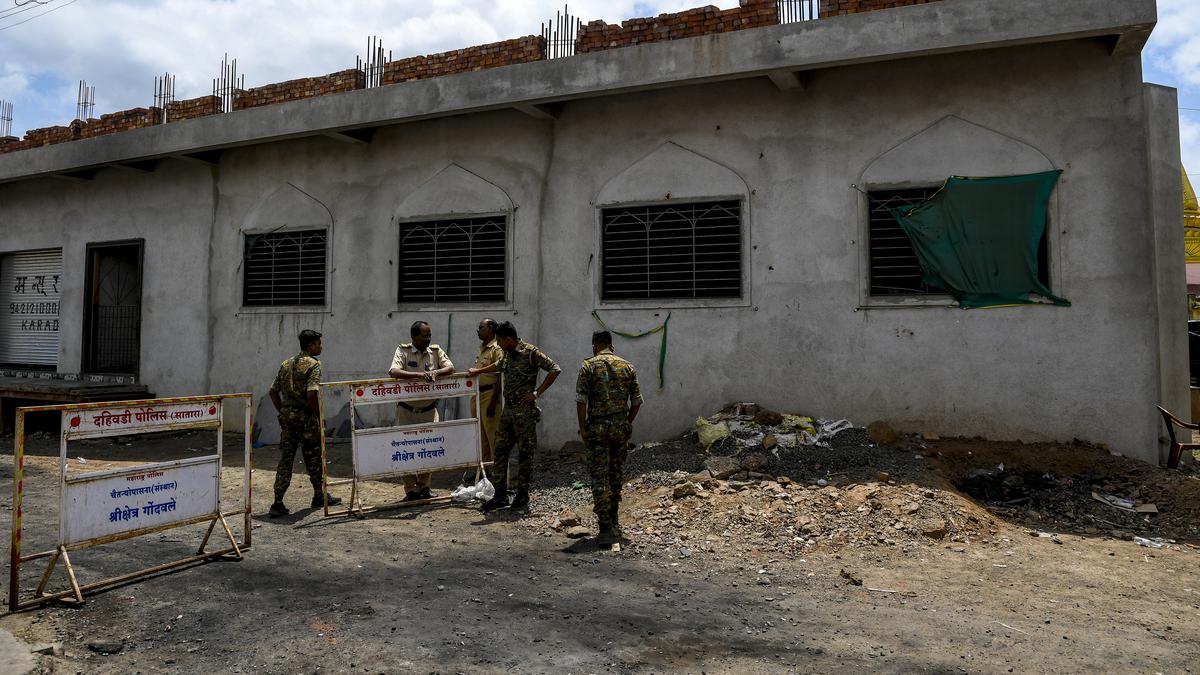
In Satara, murder during a prayer Premium
The Hindu
Nurul Hasan, a young engineer who was soon to be a father, was killed by a mob inside a mosque in Maharashtra’s Satara district. The trigger for the mob violence were social media posts to which Nurul had no connection. Abhinay Deshpande reports on yet another tragedy in a State that has been witnessing a spate of communal clashes of late
Ayesha Nurul Hasan Shikalgar, 31, is six months pregnant. She and her husband Nurul were eagerly awaiting the arrival of their baby towards the end of the year. Instead, Ayesha, a junior advocate, is struggling to deal with shock, grief, and loss now.
On the evening of September 10, Nurul, 31, a civil engineer, left home to offer the final prayer of the day at the mosque, just a 10-minute walk from home, in Pusesavali town in Satara district, Maharashtra. Pusesavali is home to about 10,000 people, of which 500 are Muslim.
“Around 9 p.m., a mob of 70-80 unidentified people descended upon the town,” say eyewitnesses who do not wish to be identified. “Their faces were obscured, and the number plates of their motorcycles hidden. The mob began to chant anti-Islam slogans and set ablaze vehicles and establishments close to the mosque.” Ayesha’s father, Mohammed Hanif Adambhai Shaikh, a farmer, says about 15-20 devotees, including Nurul, sought refuge in the mosque, the only one in Pusesavali.
Ayesha says Nurul called her minutes later, his voice trembling. He instructed her to close all the doors and stay put. He reassured her that he would remain safe in the mosque. “I can’t explain how tense I was,” says Ayesha. “I could hear the commotion outside.”
About 50 minutes later, she tried to reach Nurul, but got no response. She hoped that he was safe with fellow devotees inside the mosque, and would come home soon, for dinner.
Though Nurul neither answered nor returned her calls, Ayesha dialled his number every half an hour. “Meanwhile, my mother-in-law, Zaiben, alerted Nurul’s father, who was en route to Miraj (more than 130 km away). As there were no men in the house, my mother-in-law and I were apprehensive about going out,” she says.
Nurul’s father, Mohammed Liyaqat, teaches at a government Urdu school at Miraj in Sangli district. Zaiben is a retired government nurse. While Liyaqat would visit Pusesavali over weekends, Zaiben would shuttle back and forth between Miraj and Pusesavali, where Ayesha and Nurul live, in the farthest end of the town. Tall, lush sugarcane fields stretch out in front of the unpainted house for as far as the eye can see; at night, the fields look particularly desolate and eerie.













